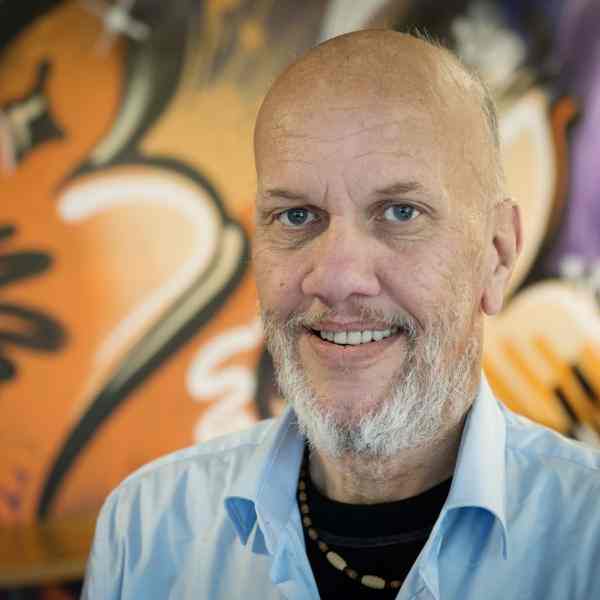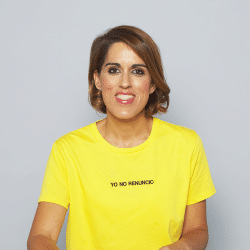Introduction
Eddi Eidsvåg is helping troubled youth (pøbel in Norwegian) who are ill-equipped for successful entry into the workforce to recognize their potential and acquire the attitudes and habits that are needed to obtain and hold a job.
The New Idea
Although the Norwegian government provides well-funded conventional educational opportunities and an abundant array of welfare services to its citizens, those offerings are not designed to address the needs of thousands of young people who may lack the self-discipline and/or social skills required for successful employment or meeting performance standards. Eddi’s Pøbelprosjektet, is successfully addressing that void with an intensive, six-week training program and a rich and growing array of follow up activities. With its “tough love” approach, Pøbelprosjektet has succeeded in instilling in its participants both a heightened sense of self-worth and a deeper understanding of the consequences of dropping out; while it also serves as an effective substitute for the absence of a supportive family structure in the lives of most of the project’s participants.
Complementing those activities, Eddi has also built a network of more than a thousand employers across Norway who regard the successful completion of the project’s training program as a trusted “seal of approval” when they are hiring new, entry level employees.
With these accomplishments—and attendant reductions in the Norwegian government’s welfare payments for unemployed youth—and with Eddi’s intention to replicate his initiative in other Scandinavian settings, Pøbelprosjektet is also playing an increasingly important role in reshaping education policy in the Nordic region.
The Problem
Despite its world-renowned welfare system, the Norwegian system creates a skewed value system that leaves little room for effective support for youth from difficult backgrounds or broken families. In all Nordic countries, there is a pattern of group behavior toward individuals (the “Law of Jante,” or “who-do-you-think-you-are” law) that portrays individual success and achievement as unworthy, whereas collective activity is revered, and individuals’ unique circumstances, problems and needs are often overlooked. The result is an often rigidly defined society. This social order translates to the education system as well: strictly organized school curriculums neglect many types of human intelligence and most visibly do not prepare young people for success in the workforce. Of the one-third of young people who are unable to cope with social pressure and dropout of school across Norway, many fall through the cracks, and their challenges and future potential go unnoticed. Once they leave school or the labor market, young people can follow up with a state employment agency to be placed in short-term jobs. But without actual government support and follow up through these transitions, the government safety net fails many, leaving thousands of young people without the support they actually need. If youth do follow up on their own and utilize these programs, they enter a system that is not designed around their natural interests and resources they already possess.
The Norwegian term “pøbel” has traditionally been used as a negative term referring to individuals who are deemed troublesome or rebellious and are often school dropouts and excluded from the labor market for various reasons, including substance abuse, mental health issues, family problems, learning and development issues, and low self-confidence and self-esteem. Some of them are also from immigrant backgrounds and have faced additional racial exclusion challenges. Most of them, moreover, fail to recognize the talents they do possess and the opportunities they can take advantage of to succeed, and they are further disempowered by repeated messages that they are underachievers and that, without twelve or fifteen years of schooling, they have not earned a comfortable place in society.
As the system exists today, when a student drops out of school or leaves work, he or she may apply to the Norwegian National Insurance Scheme (NAV) which places young people in work. The majority of employment offerings through NAV do not focus on firing up young people’s imaginations, nor do they recognize that natural interests, diversity, and uniqueness can be tremendous assets. Instead, NAV offers short-term solutions with an end goal of job placement. For most young people, however, job placement is not what is needed as the first step. Many of the same problems, whether they are related to substance abuse, mental health, or lack of self-confidence, will resurface upon placement in a new work environment. As a result, a vicious cycle begins, one in which young people fall out of work and then return to the state for support. This reality is costly, ineffective, and most importantly, does not lift the young generation up and inspire them with the confidence they need to take advantage of their own resources. Young people can remain within the system without developing the hard and soft skills necessary to re-enter the job market.
The Strategy
With a background in designing programs for substance abusers, Eddi realized that the needs of young people who fall through the cracks in Norwegian society are inadequately addressed and that new forms of support are urgently needed to help those people develop the deep connections that more fortunate individuals traditionally derive from supportive families. Accordingly, he designed the Pøbelprosjektet to take full advantage of the resources young people have to contribute to society and to stimulate the development of a new set of values, one that rewards life experience, creativity, and facilities the integration of pøbel in the workplace.
Initially, participants go through an intensive six-week course in which they learn to believe in themselves, their creative skills, and capacities as well as how to put those capacities toward productive employment. The focus of the six weeks is not on what the youngsters have done, but on what they can do moving forward. There are many difficult experiences in the life histories of most participants, including drug abuse, unstable family backgrounds, and poor results in school, but the aim and content of the program are focused on their future.
Eddi and his colleagues impose three basic requirements on all participants in the six-week course: (i) be present at every course session (ii) arrive on time, and (iii) contribute to discussion in every session. If participants comply with those straightforward requirements, the Pøbelprosjektet will continue to assist them with counseling and placement services for up to seven years—a much longer commitment than any other programs or state-offered assistance for unemployed youth. If participants are tardy for courses more than three times, they are dropped from the program (although sometimes readmitted at a later point).
In the first week, the group of approximately 20 young people engages in team building activities and creates a wish list of their dreams, which they return to later in the program. The second week involves “mapping,” in which the youth explore the networks they have and how they can recognize and explore existing resources and possibilities. The third week, themed around the Pøbelprosjektet motto, “You are good enough,” has participants work in small groups. They are challenged to create their own business ideas, pitch them, and to thereby develop their communication skills. In week four, the course focuses on seeking employment and includes preparing a CV and an activity in which participants focus on an employment goal and work backwards to figure out how to achieve it. This week also includes “envisioning exercises” that train participants to stay focused on positive life goals. In week five, employers visit and present their work to the participants. The last week includes interview training, and finally the graduation ceremony.
In addition to the unique framework of the six-week course that is both tailored yet structured enough to replicate, Pøbelprosjektet has created a new connection between the Pøbel and thousands of companies and employers across Norway. Pøbelprosjektet has formed a network of more than 1,000 Pøbel-friendly businesses across Norway and developed increasingly supportive relationships with those companies, which includes the largest chain of grocery stores in Norway and Choice Hotels. These businesses are publically committed to hiring Pøbelprosjektet graduates for a 14-week traineeship to test their fit with the company’s needs; they also play an important role in promoting the values and mission of the organization.
In order to fund the growing volume and array of Pøbelprosjektet activities, Eddi has developed a wide revenue-generating stream. Eddi is an active and highly visible advocate of the program and the youth who participate in it, and is frequently invited to give lectures and courses that support Pøbelprosjektet operations and play an important role in mobilizing interest and support among politicians and government officials. Eddi has also created a Pøbel bread company that sells Pøbel bread in many of the largest grocery stores in Norway and has generated more than 1 million Norwegian Kroner (US$168,500)—earmarked to fund the social workers who lead the project’s follow up activities with former participants and the businesses that have hired them. More than 90 percent of the young people who completed the six-week training program by April of 2014 have found work, gone back to school, or engaged in additional training or treatment programs after completing the course.
In 2012, Pøbelprosjektet saved the Norwegian government the kroner equivalent of some US$2 million while demonstrating that it is possible to prevent young people from being repeatedly circulated in and out of Norway’s welfare system. Building on the project’s success, Eddi and his colleagues are firming plans for replicating the Pøbelprosjektet initiative in other Scandinavian countries, and their long-term plans include replication in European settings where similar situations persist. Eddi has published the detailed curriculum of the Pøbelprosjektet’s six-week course in a manual that can be used in a variety of national contexts, and he is examining the possible use of a franchise model in his international efforts.
The Person
Eddi is a brilliant lecturer, social entrepreneur, visionary, stand-up comedian, and baker. He is from a small textile village in Norway of 6,000 people. Eddi’s father was a baker and every week of his life baked a new type of bread. (In his repertoire, Eddi’s father had recipes for over 10,000 breads.) Eddi’s mother was an artist and storyteller, who filled his childhood with stories and developed his imaginative capacity. In fact, as a child, Eddi did not know the difference between fantasy and reality. He was taught at an early age that it is of upmost importance to dream. For example, when he was eight, he saw a television program about magic. Eddi started to teach himself magic tricks and two months later called the broadcasting company and said he wanted to come in and learn magic in-person. He traveled to Oslo with his mother and father for the magic show on television and turned his own dream into a reality.
Eddi’s entrepreneurial life began early on. When he was twelve, he created kids’ houses for his friends who didn’t find sufficient quiet at home to do their homework. At age 14, he founded a restaurant with the money he received from his confirmation gifts. From 1989 to 1991 Eddi founded a Norwegian collective for drug addicts that focused on getting them back to work.
In 1997 Eddi set up his own bakery. He put an ad in the newspaper to request that Pøbel apply for internships. This advertisement gained immense interest and also public attention, as this was the first time Pøbel had received such a specific and public invitation. One position at the bakery grew to seven. Eddi began to think about what pøbel mean in society. He developed a training program for them to become bakers. From 1997 to 2009, he developed the concept of Pøbelprosjektet while working at his bakery. Eddi worked with his pøbel employees to co-create the content of the courses. He also wrote several cookbooks during this time. In 2009, however, Eddi created Pøbelprosjektet and was initially sponsored fully by NAV with a base in Stavanger, Norway. In 2012, Pøbelprosjektet opened operations in Oslo.
In many ways, Eddi identifies strongly with the Pøbel culture, something that has been critical to the trust he has built with hundreds of young people across Norway. He is also able to build strong relationships with employers large and small, and serves as the intermediary between the youth and employers. Participants see Eddi as a hero—someone who is embodying the life ideals they want to build for themselves. He is facilitating hundreds of transformations, proving that pøbel have important potential to contribute to the job market, regardless of whether they have a high school diploma or an unblemished record. For Eddi, it is fundamental that everyone have the right to work, contribute to society, and be taken seriously.




